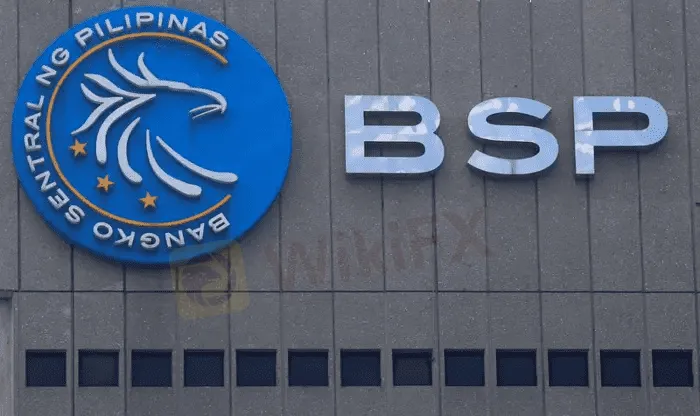简体中文
繁體中文
English
Pусский
日本語
ภาษาไทย
Tiếng Việt
Bahasa Indonesia
Español
हिन्दी
Filippiiniläinen
Français
Deutsch
Português
Türkçe
한국어
العربية
Philippine central bank hastens interest rate rise, ready for more action
Abstract:The Philippine central bank on Thursday raised its benchmark interest rates by 75 basis points in a surprise off-cycle move, and signalled its readiness to take further policy action to contain broadening inflationary pressures, its governor said.

The Philippine central bank raised its key interest rates by 75 basis points in a surprise move on Thursday and kept the door open for further tightening as it rushed to contain broadening inflationary pressure and rescue a faltering peso.
Implemented outside the regular policy-meeting cycle, the tightening move was the most aggressive by the Bangko Sentral ng Pilipinas (BSP) since the central bank shifted to an inflation-targetting approach in 2002.
The rise in interest rates accompanied policy shifts effected by other central banks in Asia and elsewhere on Wednesday and Thursday. They included one in Singapore that was also an off-cycle move.
In the Philippines, the rate on the key overnight reverse repurchase facility rose to 3.25%, BSP Governor Felipe Medalla said in a statement.
“In raising the policy interest rate anew, the Monetary Board recognized that a significant further tightening of monetary policy was warranted by signs of sustained and broadening price pressures amid the ongoing normalization of monetary policy settings,” Medalla said.
The rates on the BSPs overnight deposit and lending facilities were also raised by 75 basis points, to 2.75% and 3.75%, respectively.
No such move was expected on Thursday because the BSP did not have a regular policy meeting scheduled until Aug. 18. The central bank previously raised interest rates by 25 basis points in May and again in June.
Medalla said the BSP would still hold the Aug. 18 meeting, and policy moves remained data-dependent.
Inflation surged to the highest level in nearly four years in June, and is widely expected to remain elevated, pushing the full-year average beyond the target band of 2% to 4%.
Finance Secretary Benjamin Diokno said the economy remained robust and could thus absorb Thursdays interest rate rise. It would remain supported by the easing of COVID-19 restrictions and structural reforms, he added.
Peso recovers
The Philippine peso, which had hit a record low early this week versus the U.S. dollar, recovered some lost ground and was last up 0.3%.
The peso is the worst-performing currency in Southeast Asia this year as the greenback continues to strengthen on expectations for faster Federal Reserve policy tightening.
The Fed is seen stepping up its tightening campaign with a supersized 100 basis point rate hike this month after a report showed inflation racing at four-decade highs.
The BSPs move was meant to support or at least stabilise the peso exchange rate, said Michael Ricafort, economist at Rizal Commercial Banking Corp in Manila.
A weak peso adds further pressure on inflation, threatening to derail recovery of the consumption-driven domestic economy.

Disclaimer:
The views in this article only represent the author's personal views, and do not constitute investment advice on this platform. This platform does not guarantee the accuracy, completeness and timeliness of the information in the article, and will not be liable for any loss caused by the use of or reliance on the information in the article.
Read more

Truth About Markets.com: 5 Hidden Risks Revealed
There are many brokers that offer too many promotions. Have you ever wondered why they do this? This Could be the story of Markets.com. Before you choose Markets.com, read about the hidden risks they never openly talk about.

Breaking News: OmegaPro Caught in a $650 Million Forex and Crypto Investment Scam
An indictment was leveled against two men in the District of Puerto Rico for their alleged involvement in the operation and promotion of OmegaPro, an international investment scheme that has led to financial losses worth over $650 million for investors. Check more about this story

5 Reasons: Microtrade Is a Red Alert
Is MicroTrade a scam or is it safe? This is a common question for many who are looking to invest or trade. Check out this article and you’ll see it is an investment scam

No License, No Security: CNMV Issues List of 10 Illegal Firms
Spain's financial watchdog, the National Securities Market Commission (Comisión Nacional del Mercado de Valores, CNMV), has issued warnings against 10 unlicensed forex brokers operating without proper authorization.
WikiFX Broker
Latest News
Global stock markets are calling Trump's bluff on tariffs
Trump's tariffs overshadow the pomp and pageantry as Macron meets King Charles
Boeing delivers most airplanes since late 2023 after ramping up 737 Max output
Inflation expectations drift back down to pre-tariff levels, New York Fed survey shows
MT4 vs MT5: A comprehensive comparison in terms of functionality
Top Forex Trading Strategies for the London Session
Swissquote Takes Full Control of Yuh Digital Finance App in Major Deal
Top 5 Forex Pairs Every Trader Should Have on Their Radar
What WikiFX Found When It Looked Into Decode Global
Treasury yields rise as Trump's new tariff rates in focus
Currency Calculator


